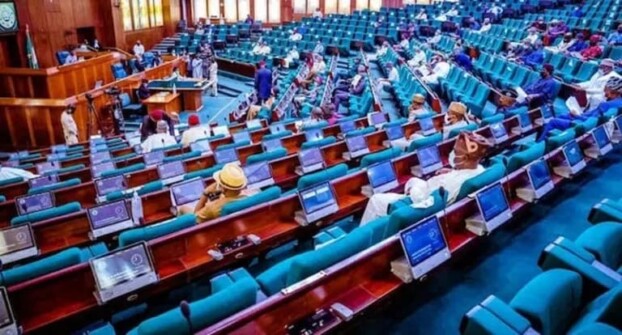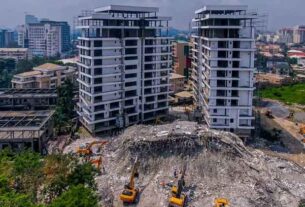Olayiwola Oshunrinade
The National Assembly has taken a swipe at the federal government over poor implementation of capital projects in 2024 budget, saying the situation was unpalatable.
It also expressed serious concern over the huge discrepancies in the size of recurrent expenditure, relative to capital expenditure and the low level of fund releases for capital projects for ministries, Departments and agencies, MDAs, in the 2024 budget currently ongoing.
Consequently, both the Senate and the House of Representatives have asked the economic team to, as a matter of urgency, release more funds for capital projects, so that a great majority of Nigerians could feel the impact of government.
The decisions of the National Assembly were sequel to a joint sitting of the chairmen of Senate and House Committees on Appropriations and the Presidential Economic Team on the consideration of 2025 Appropriation Bill, with Senator Olamilekan Adeola, APC, Ogun West, and Abubakar Bichi, chairmen of Senate and House committees, respectively, presiding.
The position of the National Assembly was taken after the report of the economic team, led by the Minister of Finance and Coordinating Minister of the Economy, Wale Edun, showed that overall, so far, only 25% of capital expenditure was implemented, against 43% for recurrent.
In his remarks, the chairman, Senate Committee on Appropriations, Senator Adeola, said he was an advocate of drastically reducing the ratio of recurrent expenditure to capital in the budget from the present level of about 80% for recurrent and 20% for capital to at least 60% to 40%.
He stressed that capital projects in the budget and their implementation remained a major spur for economic growth and direct impact on the people.
Adeola said: “Capital releases to MDAs are the major drivers of economic activities within the nation. Non release of funds for capital projects is a major issue in the performance of 2024 budget so far and it is desirable that funds are released to prevent abandoned projects and ensure the success of the Renewed Hope Agenda of the president.”
He said it would not be cheering news for MDAs to come for their 2025 budget defence with records of non-performance of their core mandates, as contained in the capital budget, adding that within the period of the 2024 budget still running, effort should be made by the finance ministry to release funds for capital projects.
Corroborating Adeola, his counterpart in the House of Representatives, Bichi, called for more releases for capital projects of MDAs for such projects as schools, roads, dams, hospitals and other social infrastructure, instead of items as debt repayment.
Bichi, whon argued that it could be restructured in the interim, said: “Most of the items of recurrent expenditure which takes a huge part of our budget and is implemented 100% will only directly affect about 10% of our population, while capital projects of the MDAs will directly affect majority of over 200 million Nigerians in areas of social infrastructure provisions such as hospitals, schools, roads, energy and similar.”
At this point, the minister of finance confirmed release of outstanding capital funding soon, regretting, however, that the country could not go back on the old ways of spending money not available, to avoid backlash as happened in France and Germany recently, adding that there were warrants awaiting payment for capital projects.
On his part, the Minister of Budget and Planning, Alhaji Abubakar Bagudu, said the huge recurrent expenditure in the nation’s budgets was a function of the country’s level of development and some of the societal challenges the country was facing at this moment.
He added that some of the recurrent goes into the campaign of the military against insecurity which, according to him, was yielding results to spur agricultural production and economic activities.
Director General of Budget Office, Dr. Tanimu Yakubu, who also attributed the huge recurrent expenditure to past legacies inherited by President Bola Ahmed Tinubu in areas such as unpaid pensions and gratuities which the administration had successfully addressed.
He stressed that in the future, there might be need for legislation by the National Assembly to limit the size of recurrent expenditure in the budget.
The meeting, which had in attendance the Minister of State for Finance Dr, Doris Uzoka-Anite and the permanent secretaries of ministries of finance as well as budget and national planning, also deliberated on the issues of waivers and tax holidays which seemed to reduce revenues for the government.








